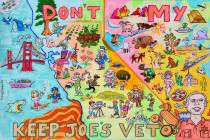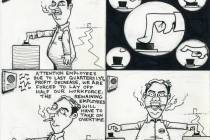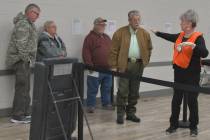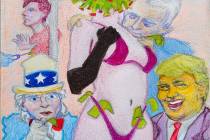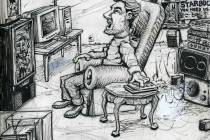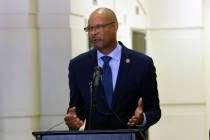Yet another health hysteria unfolds
In the 1980s a new disease arrived in the United States. Journalism basically ignored it because here, it initially affected mostly gays. When there was news coverage of it at all, it was described with terms like “gay cancer” or “gay plague”, which indicated how ignorant most reporters were. The disease did not affect only gays, nor did it originate with them.
This delay in covering AIDS had terrible consequences. Because so few people knew the disease existed, there was little pressure on policymakers to deal with it. “Once toxic shock syndrome hit the front pages, the heat was on to find the answer,” AIDS historian Randy Shilts later wrote. “Within months of the first [CDC] report, the task force had discovered the link between tampons and the malady.
Back in 1976, the newspapers couldn’t print enough pictures of flag-draped coffins of dead American Legionnaires” who died from the new Legionnaires’ Disease.
But “only” gays were afflicted by AIDS, supposedly, and so journalists largely avoided covering it. Lots of people died because reporters didn’t do their jobs.
When word spread that AIDS was working its way into the heterosexual community, journalism jumped on the story like crazy. With more worthy victims, news coverage took off. Unfortunately, the tone of the sudden coverage was hysterical, generating public panic. Suddenly health clinics were loaded with people seeking AIDS tests and conservatives were calling for throwing victims into medical concentration camps. Journalism went from no coverage to bad coverage.
In 1976, after a Fort Dix outbreak of swine flu that resulted in one death, health care officials got out in front of it and a nationwide vaccination program was begun. Forty million people were vaccinated.
Not surprisingly, as with any vaccination drive, there were side effects. Thirty people who were vaccinated experienced Guillain-Barré syndrome, though in a nation of 218 million people, showing cause-and-effect was difficult. (Wikipedia now claims the vaccination drive is “thought to have caused five hundred cases of Guillain–Barré syndrome.”) There were also several deaths, though again linkage to the vaccinations was uncertain. That didn’t stop journalism, which promptly spun a panic and the number of people getting vaccinations started falling. President Ford had himself vaccinated to show the safety.
When the whole thing was over, no epidemic developed – and journalists complained. They seemed to think that the lack of an epidemic meant that the vaccination drive had been unnecessary. The fact that an epidemic might have been averted by the 40 million vaccinations seemed not to occur to them. As recently as 2009, USA Today reported that in 1976, the public was “immunized against an epidemic that never materialized.”
It was also in 2009 that the H1N1 flu appeared. Reporters went for the most extreme claims and predictions, whipping up a nice hysteria that wasn’t merited. They promoted hand sanitizers like they held shares in the companies, though the best informed health care professionals said such products were unnecessary, that washing hands with soap a couple of times a day was all that was needed.
Now there is the Ebola virus and journalism in the United States is blowing the story as disastrously as it bungled earlier health care scares.
It should be otherwise. Our calling could be serving a public service through careful, restrained coverage that is tied only to hard facts. Instead, reporters panic, serving as stenographers instead of as journalists, peddling speculation (both from dubious interviews and from themselves), taking down anything they’re told and putting it on the air or in print with little checking. During the AIDS years, there were few experts because so little was yet known about it, but reporters described many poorly informed health care professionals as experts, anyway. The same thing is true now. Information on Ebola needs to be culled for reliability, but reporters are just tossing it out there raw.
Panic is as communicable as disease, and journalism is spreading it.
Dennis Myers is an award winning journalist who has reported on Nevada’s capital, government and politics for several decades. He has also served as Nevada’s chief deputy secretary of state.







